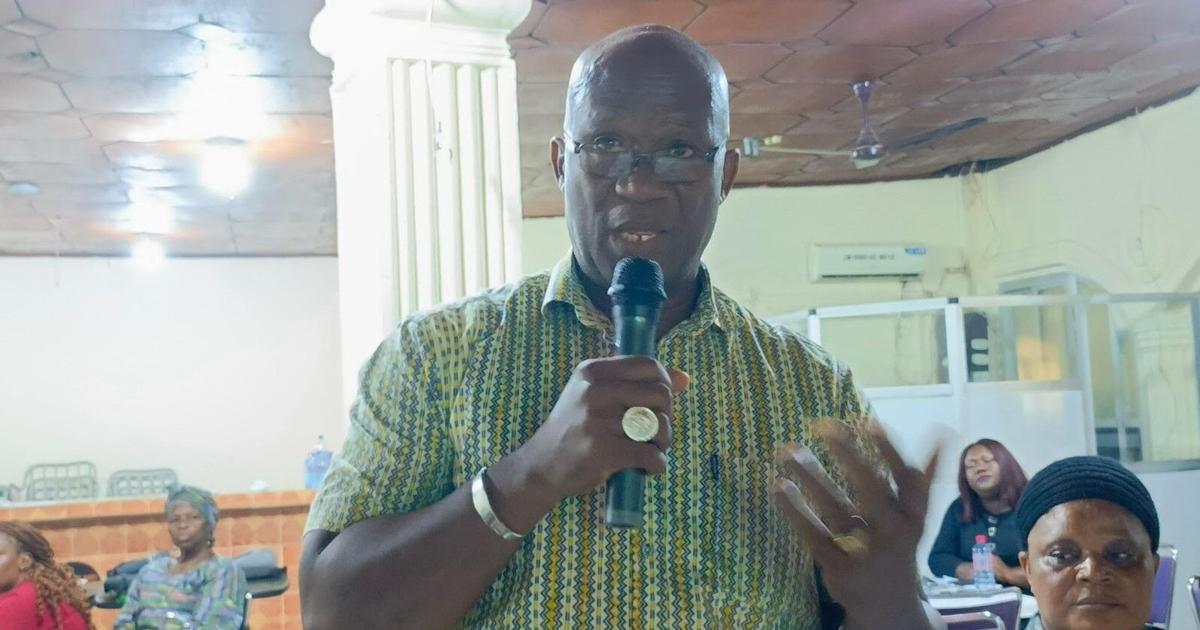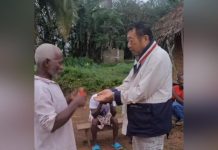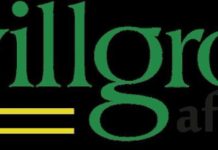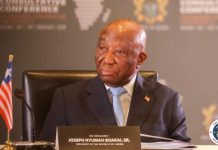Africa-Press – Liberia. Dr. George Gould, Deputy Head of Financial Sectors Development at the Central Bank of Liberia (CBL), has underscored the importance of financial inclusion as a central component of the CBL’s financial sector development program.
Speaking at a multi-stakeholder policy dialogue workshop hosted by UN Women in Ganta, Nimba County, Dr. Gould emphasized the crucial role that financial inclusion plays in empowering women, particularly in the informal sector, which comprises a significant portion of Liberia’s economy.
“Financial inclusion is a vital part of our financial sector development program. It’s not just about providing access to bank accounts, but about creating pathways that allow all Liberians, especially women, to engage meaningfully in the economy,” Dr. Gould said.
The event, held from November 12-14, brought together key representatives from various sectors, including the Liberia Chamber of Commerce, the Liberia Business Association, government ministries, and private sector leaders, to discuss strategies for advancing women’s economic empowerment in Liberia.
Currently, there’s an ongoing partnership between the CBL and UN Women Liberia to ensure that women are empower economically and have access to finance.
Dr. Gould pointed to a staggering statistic from the World Bank, which revealed that approximately 48% of Liberia’s population lacks access to basic financial services such as bank accounts and credit.
He noted that financial exclusion is particularly high among women, who make up the majority of the informal sector. “Financial exclusion is very high in Liberia, and women in particular face greater barriers,” he said. “It is a critical issue, and the Central Bank is working tirelessly to address this gap, ensuring that women, who make up a large part of the informal economy, have the tools they need to thrive.”
Liberia’s financial landscape is dominated by a large informal sector, where women’s businesses often operate outside of formal financial systems, making it harder for them to access loans, credit, and other financial products.
Dr. Gould explained that women in this sector typically rely on informal savings groups, such as Village Savings and Loan Associations (VSLAs), which have shown promising results but need to be integrated into the formal banking system to ensure sustainability and access to more financial products.
To address this, Dr. Gould outlined several initiatives the CBL is implementing, including transitioning VSLA groups from informal to formal financial systems. The CBL has already piloted this model in Bong and Nimba counties, where 15 VSLA cooperatives have been involved in the project. “We’ve seen success in the pilot phases in Bong and Nimba counties. The cooperatives are demonstrating the potential to transition into the formal financial system, and we’re building on this success to scale the program across Liberia,” Dr. Gould said.
The CBL is working closely with local banks to create financial products tailored to the specific needs of women entrepreneurs. “We want banks to view these women as credible business operators. They should be able to offer them specialized products that are accessible and affordable. This is not just about opening accounts — it’s about creating financial tools that work for women in the informal sector,” he explained.
The partnership between the CBL and banks is focused on encouraging financial institutions to offer loans to women with reduced collateral requirements and lower interest rates. “One of the key objectives is to build trust with banks and demonstrate the viability of women-run businesses in the informal sector. By using cash flow data from VSLA cooperatives, we can show banks that these businesses are sustainable and worth investing in,” Dr. Gould added.
As part of the effort to make financial inclusion more effective, Dr. Gould emphasized the importance of an “evidence-based” approach. “We want to make sure the model we’re developing is effective before we scale it. This means we need to gather data, evaluate impact, and work closely with banks to ensure they’re committed to supporting women-led businesses with tailored financial products,” he said.
Dr. Gould concluded by reaffirming the CBL’s commitment to addressing these challenges through the ongoing financial inclusion initiatives. “We are determined to create a more inclusive financial system that allows everyone, particularly women, to have the tools they need to succeed. Empowering women economically is not just good for women — it’s good for Liberia,” he said.
For her part, Dr. Muriel Ametoglo, UN Women’s Regional Feminist Economist, presented research on how unpaid care work limits women’s economic opportunities and negatively affects national productivity and GDP.
She explained that women in Liberia typically spend three to five hours a day on unpaid care work, which restricts their ability to engage in formal employment or entrepreneurial activities.
“Unpaid care work is a significant barrier to women’s participation in the economy. Women in Liberia spend substantial time on caregiving tasks, which affects their ability to work, start businesses, or engage in other productive activities,” Dr. Ametoglo said. “Addressing this burden is not only crucial for gender equality but also for the growth of Liberia’s economy.”
Dr. Ametoglo shared findings from studies conducted in other African countries, such as Côte d’Ivoire, Senegal, and Nigeria, where investments in child care infrastructure have led to substantial economic benefits. “In countries like Côte d’Ivoire, investing in child care infrastructure has created millions of jobs and generated significant returns for the economy. It has also opened up formal employment opportunities for women,” she said.
Reducing the burden of unpaid care work, she explained, could unlock women’s potential to contribute more fully to the formal economy, leading to increased national productivity and GDP. “By investing in child care and other care infrastructure, we can create an environment where women are able to participate more fully in the economy. This would not only empower women but also contribute to Liberia’s broader economic growth,” Dr. Ametoglo added.
Meanwhile, the workshop also emphasized the need for policymakers to create an enabling environment that supports women’s participation in the workforce, including creating more formal employment opportunities, improving access to education, and reducing barriers to entrepreneurship.
For More News And Analysis About Liberia Follow Africa-Press






